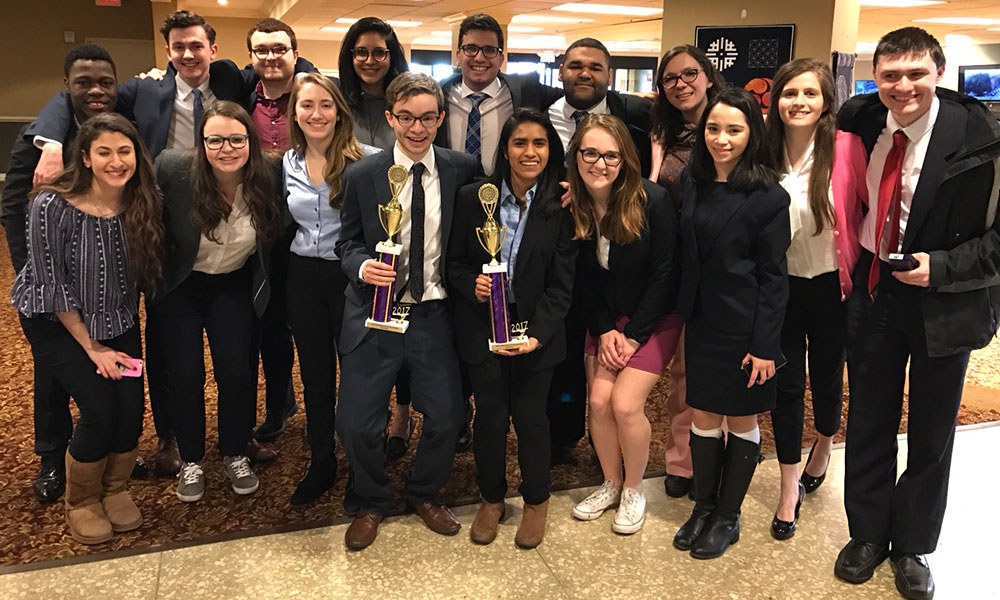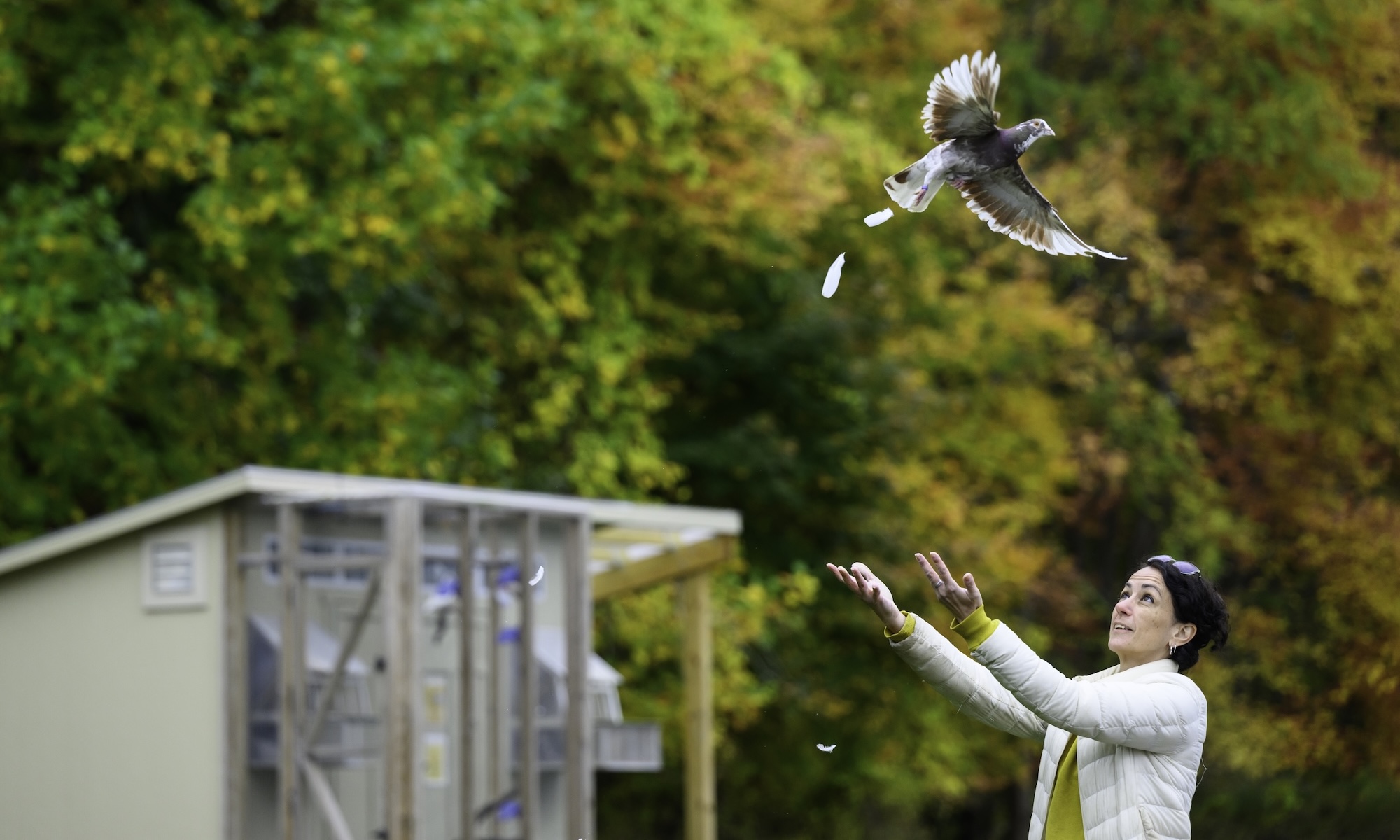The University of Rochester Mock Trial team is sending two teams to the national championships for the first time in University history. On Thursday morning, two teams of eight students each boarded a plane headed for the University of California, Los Angeles, where the top 40 teams from elite colleges around the nation will come together to compete in the biggest tournament of collegiate Mock Trial.
“I think we have the talent, the energy, and the enthusiasm to knock out some really great teams and show that Rochester Mock Trial is a top organization,” says Mock Trial President Jason Altabet ’17, who was the top ranked attorney in the national qualifiers.
At the national qualifying Opening Round Championship Series (ORCS) in March, Rochester took on top-ranked University of Maryland and the reigning national champions from Yale University. The team won both rounds, sending them to compete with some of the best teams in the country. The national championships will be held April 21–23 at the Stanley Mosk Courthouse in downtown Los Angeles. Rochester is one of only six schools in the nation to have two teams qualify at the national level.
“I’m really looking forward to competing in a place with so much history,” says Matthew Hoffner ’19, a history major from Patterson, New York, who received an individual award for his performance at ORCS. “This is the same courthouse where O.J. Simpson’s trial took place,” Hoffner notes.
Altabet, a political science and economics major from Scarsdale, New York, says mock trial is “essentially a competitive sport.” It’s structured just like a trial in a professional court of law, and each trial begins with opening statements by both the plaintiff and the defense. The plaintiff and defense are then given the opportunity to call three witnesses, conduct a direct examination, and then observe as their opponent does a cross-examination of their witness before presenting closing statements.
The team won both rounds.
“Basically, each case is a story, and that story is told through your witnesses and through crossing their witnesses,” Hoffner says. “There’s a lot of stuff going on.”
Going into each trial, the team doesn’t know if it will be playing the defense or the plaintiff so members need to be prepared for either position. At nationals, as in most tournaments, they will compete in four trials against different teams, alternating between being defense and plaintiff.
“The hardest part is putting everything together,” says Altabet. “You have to be ready for a lot of contingencies; anything can happen in a trial.”.
During the regular season, the team practices twice a week for two hours to break down the 100-plus pages of materials that explain all the details of the case. While preparing for nationals, the teams would meet three to four times a week, for a total of about 12 hours of practice per week—in addition to schoolwork and other extracurricular commitments.
“I don’t want to be a lawyer, but it’s just fun competing, and I’ve met some extraordinary people doing Mock Trial,” Hoffner says. “It’s a really good sense of community.”
“Many people just enjoy the analytical aspect, enjoy the competitive aspect, or enjoy the acting aspect,” Altabet adds.
Apart from being intellectual and time intensive, a large portion of mock trial can be quite theatrical and light-hearted.
“Acting is definitely a part of it, especially if you’re a witness,” Altabet says. In a past tournament, Kristen Webster ’17, played an old woman who was fired because of age discrimination. Webster wore a pink pantsuit and large, pointed glasses with a chain to embody her character. For nationals, Sam Callis ’17 will play a big New York CEO with a heavy Brooklyn accent.
“This year, I think we’re really good and our trick is that we have amazing witnesses—they are so fun and entertaining, and that’s a big boost for us,” Altabet says.
Going into nationals, Altabet and Hoffner are confident that the teams will do well.
“When we faced Yale and beat the national champs, it really showed that we have two teams who can perform very well at nationals,” Altabet says. “I would love to place at least one team in the top 10, because it is a really great honor and leads to a lot of opportunities in the future.”




